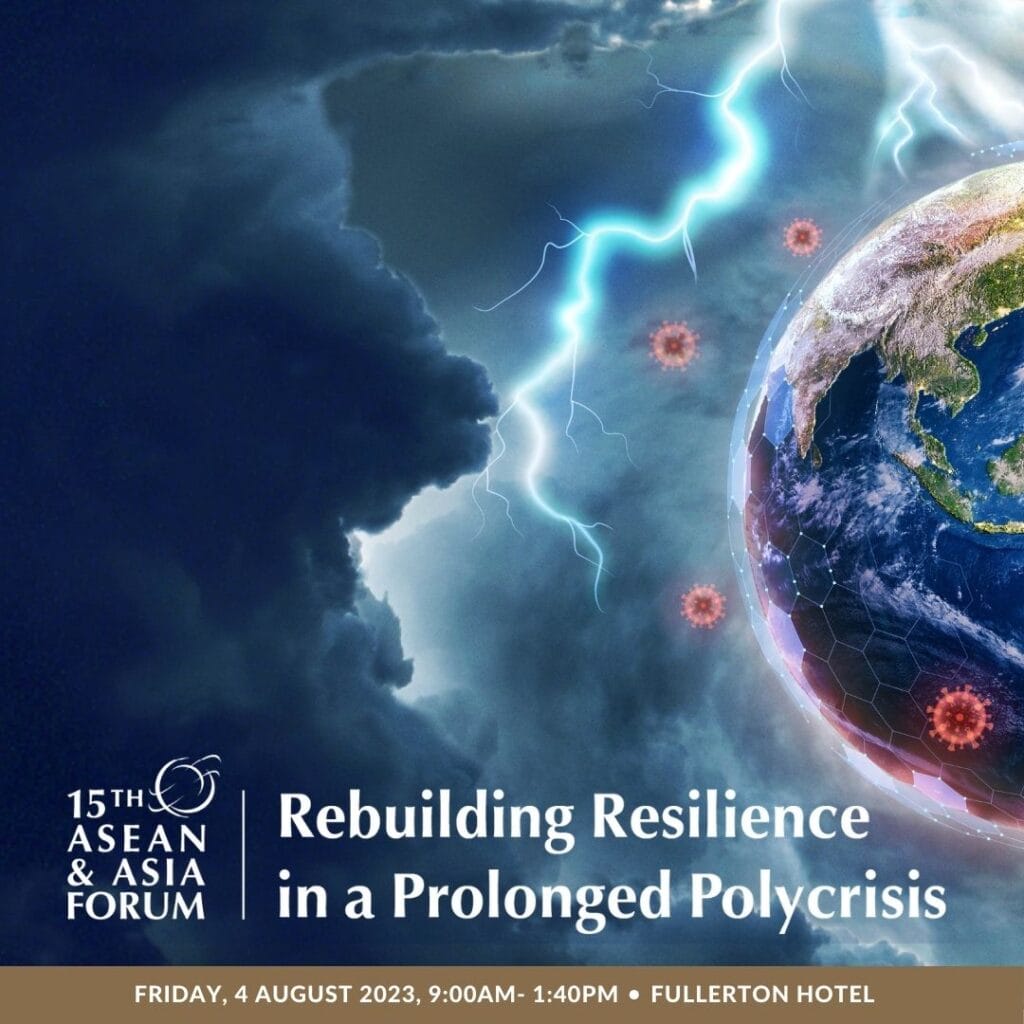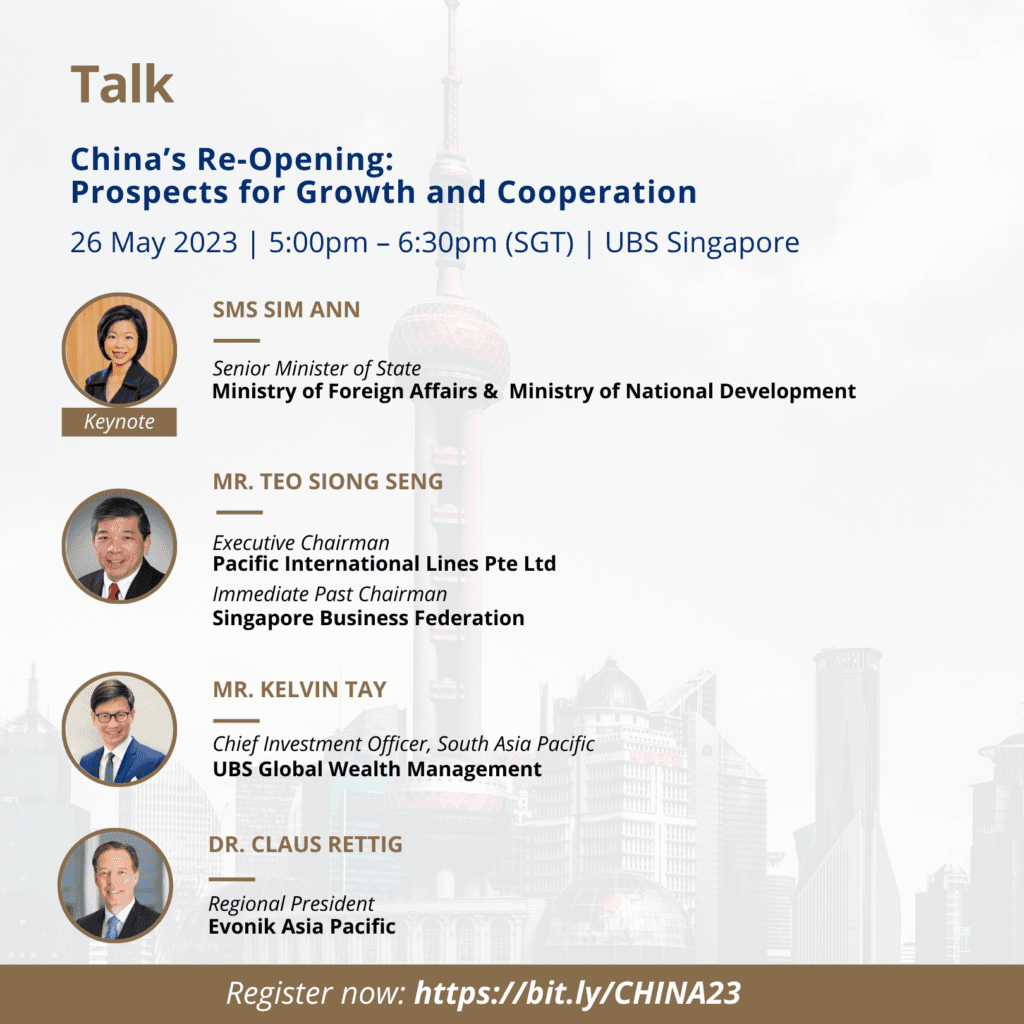The Singapore Management University (SMU), United Nations Environment (UNEP), and the Singapore Institute of International Affairs (SIIA) jointly organised a public event on ‘Singapore, Green Finance and the Collaborative Challenge’, on 10 Jan 2017. The session was attended by some 120 participants. This event was covered by Eco-Business and Climate Action. A summary of the event was also published by SMU.
Event Highlights: Leveraging Technology, Innovation, and Collaboration for Sustainable Financial Systems
Reforms are needed in the global financial system. The current rules and incentives governing financial markets often prioritise resource-intensive activities, while failing to adequately account for their environmental, social, and governance (ESG) impacts. In order to meet international commitments on sustainable development such as the Paris Agreement, the financial system must be steered towards sustainability. Last year, Bank of England Governor Mark Carney called for a “reset” of the financial system to better meet the needs of a low-carbon economy.
Some progress is already being made. Around the world, a mix of global frameworks, national policies, and market forces are coming into place to support sustainable initiatives. Mr Piyush Gupta, CEO of DBS Bank, pointed out that solar and wind energy projects were once traditionally hard to finance as they suffered from high costs and comparatively low returns on capital. Today, technological advancements have allowed green projects to rapidly cut costs and increase revenues, making them much more attractive to banks and investors.
Innovation in the financial technology (fintech) sphere is also becoming an important disruptor. The applications of fintech are widespread, ranging from mobile payment platforms and high-frequency trading (HFT) to crowdfunding, virtual currencies, and blockchain. A prime example is M-PESA, a mobile money network that has reached 25 million users in Kenya, many of whom previously lacked access to financial services. M-PESA was initially designed as a system to facilitate microfinance loan payments via mobile phone, but is now used for all types of everyday transactions.
According to Ms Nuru Mugambi, Director of Communications and Public Affairs at the Kenya Bankers Association, Kenya’s culture of collaboration has created a conducive environment for M-PESA to flourish. The Kenyan banking industry initially viewed M-PESA as a competitor, but has now shifted to embrace the technology, integrating and expanding it into a peer-to-business network.
Close collaboration between all stakeholders is essential, due to the complexity of the financial industry and its underlying factors, said Dr Simon Zadek, co-director of the UN Environment’s Inquiry into the Design of a Sustainable Financial System and DSM Senior Fellow and Visiting Professor at SMU.
A collaborative approach is also needed because of the sheer size of the financial commitment involved in transforming economies to be more sustainable, Dr Zadek added. An estimated US$5-7 trillion will be required per year to realise the United Nations Sustainable Development Goals (SDGs) in developing countries by 2030. This demand cannot be satisfied by public funding alone, so collaboration with private funders is necessary.
Stock exchanges can also help by educating listed companies on how to implement ESG practices, said Dr Mohamed Omran, Chairman of the Egyptian Exchange (EGX). In 2012, the EGX was one of five exchanges to become pioneer members of the UN’s Sustainable Stock Exchanges (SSE) Initiative (SSE), which seeks to advance transparency and commitment to ESG issues among listed companies. Since then, the SSEI has grown to encompass 61 major stock exchanges across the world, including the Singapore Exchange (SGX). With the support of the SSEI, several member exchanges, including SGX, have released guidelines mandating more transparent ESG reporting among their listed companies.
Such advances have laid the foundation for a system-wide shift towards sustainable finance in Singapore. The collaborative approach has already borne fruit locally. “Last year, for the first time, the Association of Banks in Singapore (ABS) got together and came up with a set of sustainability guidelines,” said Mr Gupta. The unprecedented effort was partially helped by the haze in Singapore. “But for the first time, we did this collectively because it is important to the industry.”
Singapore is also positioning itself strongly as a fintech hub by promoting “sandboxes” and a positive regulatory framework.
Still, as Singapore journeys towards greater financial sustainability, it must exercise caution and not simply replicate the measures adopted in other countries, said Ms Chen Chen Lee, Director (Policy Programs) at the SIIA. Public-private collaboration must continue to establish consensus and design measures specifically adapted for Singapore’s context.
Additional Reading:
Castilla-Rubio, J. C. et al. (2016) Fintech and sustainable development: Assessing the implications, The Inquiry into the Design of a Sustainable Financial System, December 2016, [Online]
Event Details
Date: Tuesday, 10th January 2017
Time: 5:00pm – 7:00pm (Registration at 5:00pm; Event begins at 5:40pm)
Venue: Singapore Management University
Level 5, Mochtar Riady Auditorium
Administration Building
81 Victoria Street
Singapore 188065
Panellists:
Mr Simon Zadek
Co-Director, UNEP Inquiry into the Design of a Sustainable Financial System. Visiting Professor DSM Senior Fellow in Partnership and Sustainability, SMU
Mr Pedro Páez,
Minister for Economic Policy Coordination of Ecuador and Coordinator of the Southern Bank
Mr Mohammed Omran
Executive Chairman of the Egyptian Exchange. Chairman of the Federation Euro-Asian Stock Exchanges (FEAS) and Professor of Finance at the Arab Academy for Science and Technology
Mr Piyush Gupta
CEO, DBS Bank
Moderated by:
Prof Ann Florini
Academic Director, Master of Tri-Sector Collaboration.
Professor of Public Policy, School of Social Sciences, SMU
Original Event Synopsis:
Last year was the first time that green finance was highlighted at the G20 Summit chaired by China. A greater climate change awareness and the Paris Agreement in 2015 have raised the urgency of the issue. In this respect, sustainable finance has emerged as a keystone in meeting global needs and delivering the Sustainable Development Goals (SDGs).
The momentum behind sustainable finance has been steadily growing in Singapore – a financial hub serving the many rapidly emerging markets in the Asia-Pacific. In October 2015, amid one of the most severe episodes of transboundary haze, the Association of Banks in Singapore (ABS) announced its “Guidelines on Responsible Financing,” requiring Singapore banks to embed responsible financing guidelines into their operating procedures. In June 2016, the Singapore Exchange launched its “comply and explain” reporting rules, which require all companies listed on the Exchange to report their policies and performance with regards to Environmental, Social, and Governance (ESG) issues by 2018. These steps are crucial to help minimise the reputational and credit risks to Singapore-based financiers in their lending and investment activities. But better aligning financial and capital markets with global needs and the SDGs requires collaborative action.
Against this backdrop, this event – jointly organised by the Singapore Management University (SMU), the United Nations Environment (UNEP) and the SIIA – seeks to offer insights on the latest developments in sustainable finance globally and some of the ongoing initiatives advanced by the financial community. This session will help business executives, public officials, academic, researchers and civil society representatives understand whether, why, and how to foster cross-sector collaboration in the public interest in support of sustainable finance.
More details of the event can be found below and the registration link can be found here.
For more information, please contact Ms. Fidelis Lee at fidelis.lee@www.siiaonline.org




